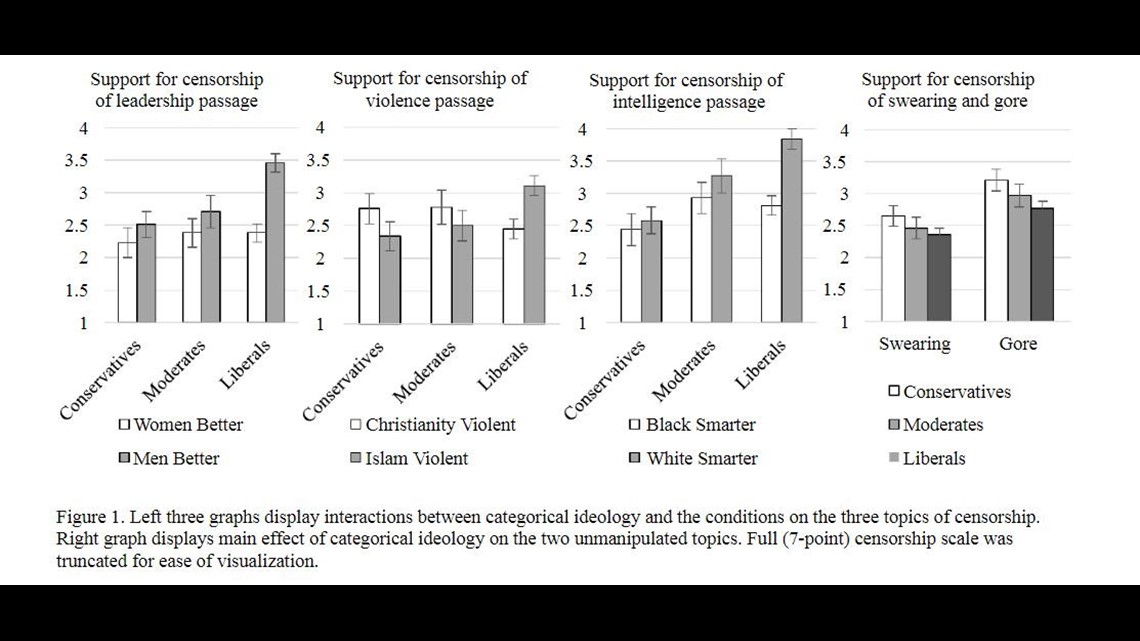A new study called The Ideology of Censorship sought to identify bias in censorship and where it originates from, and according to the authors, it’s young women and liberals that support censorship the most.
Recent work has suggested that Liberals have sacred values about protecting low-status groups and thus are particularly prone to bias against any information that portrays those groups unfavorably. In a preregistered study (n = 559), we tested whether Liberals would support more censorship of information that portrays low status groups unfavorably (that men evolved to be better leaders than women, that Islam is violent and incites terrorism, and that white people score higher on intelligence tests than black people) than similar information that portrays high status groups unfavorably (that women evolved to be better leaders than men, that Christianity is violent and incites terrorism, and that black people score higher on intelligence tests than white people).
The paper states that more than 500 people participated in the study.


The authors say the study was conducted by telling participants they would be reading controversial passages from books and then be asked to respond to questions about those passages. They each read five passages in total.
The authors are credited as Bo M. Winegard, Cory J. Clark, and Ethan Bunnel.
One of the authors posted a followup on Twitter:
The abstract goes on to say:
Liberals consistently displayed double standards in their censorship preferences such that they desired to censor information that portrays low-status groups unfavorably more than information that portrays high-status groups unfavorably. Moderates and Conservatives supported more similar levels of censorship regardless of whether the information was favorable toward relatively high or low-status groups, but Conservatives did display a small preference for censoring Christian violence over Islamic violence.


The studies authors also conclude that “Millennials might be slightly more in support of censorship than Generation X in general, but Baby Boomers’ censorship support generally fell between that of Generation X and Millennials.”



